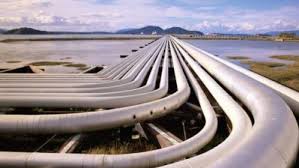
Oghenekevwe Ovbije & Obiageri Amaliri
Houston, TX — While Nigeria continues to declare natural gas its transition fuel of choice, the gap between ambition and execution grows wider each year. With over 206 trillion cubic feet (TCF) of proven gas reserves, the country still struggles to deliver affordable gas to homes, industries, and transport fleets. Less than 10% of produced gas is consumed domestically, and infrastructure development remains fragmented.
In contrast, nations like Qatar, the United States, Russia, Malaysia, Turkmenistan, and Australia each with their own geopolitical and economic constraints have successfully leveraged gas for domestic transformation. Their experiences offer practical lessons on how Nigeria can unlock its own potential, not just as an exporter but as a nation where gas improves everyday life.
Qatar: Domestic Prosperity through Strategic Export Integration
Qatar transformed itself from a marginal hydrocarbon exporter into a global gas leader through deliberate strategic planning. At the heart of its success is a joint-venture model that blends state ownership with International Oil Company (IOC) participation, ensuring access to capital, markets, and technology. Yet the Qatari strategy didn’t stop at exports. The state invested in a national gas delivery system ensuring that homes, schools, and hospitals are powered by piped gas, while public buses and government fleets run on CNG. Revenues from LNG exports fund not only infrastructure but also education and healthcare. Gas monetization should not end at the Bonny terminal. It must circle back to benefit citizens by powering cities, transport, and public services. A reinvestment policy targeting gas-to-home and gas-for-transport infrastructure is critical.
United States: Innovation, Deregulation, and Market Power
The United States became a gas superpower not through state planning, but through deregulation, technological innovation, and market liberalization. The shale gas revolution, enabled by horizontal drilling and hydraulic fracturing, unlocked massive reserves. But equally important was the legal framework that allowed independent producers to compete, access infrastructure, and set transparent prices. Cities like Los Angeles, New York, and Houston now run large CNG bus fleets, while natural gas has displaced coal as the primary power source in several states. Pipelines stretch across the country, linking producers to consumers in real time via hub-based trading platforms. Unlocking value in gas requires a competitive, well-regulated market. Deregulation of the domestic gas pricing structure and city-led CNG adoption initiatives could drive growth far faster than state monopolies.
Russia: Infrastructure-Led National Coverage
Russia’s approach has been anchored in state-led infrastructure development and energy security. Over 70% of households across Russia’s vast geography are connected to piped gas despite harsh climates and remote terrain. This is the outcome of sustained investment in over 450,000 km of pipeline infrastructure, coordinated pricing strategies, and strong enforcement of household connections. In addition to meeting domestic needs, Russia exports vast volumes of gas via long-distance pipeline diplomacy, wielding gas as both an economic engine and a geopolitical instrument. If Russia can pipe gas through Siberia, Nigeria can certainly connect Lagos, Kano, Port Harcourt, and Enugu to domestic gas networks. A federally funded backbone pipeline and urban gas distribution strategy is urgent.
Malaysia: Balancing National Revenue and Domestic Use
Malaysia’s model anchored by PETRONAS offers a hybrid approach. PETRONAS is both a state-owned entity and a commercially competitive firm. While Malaysia is a major LNG exporter, it maintains domestic price controls, urban piped gas networks, and LPG supply to rural areas through targeted subsidy programs. Beyond infrastructure, Malaysia built a domestic gas appliance ecosystem encouraging local manufacturing of stoves, meters, and compressors. This sustained jobs and ensured consumer readiness as gas access expanded. A single, competent gas agency with commercial autonomy similar to PETRONAS could drive both export growth and domestic inclusion. Nigeria must also localize its gas appliance manufacturing to deepen the value chain.
Australia: Regulatory Mandates and Market Transparency
Australia is home to one of the largest LNG export industries in the world, yet it has also mandated gas producers to reserve a portion of production for domestic consumption. This ensures that households and industries are not priced out of the market. Furthermore, Australia developed transparent trading platforms (like the Wallumbilla Gas Supply Hub), encouraging market efficiency and private capital investment. Domestic supply obligations and a centralized trading system could stabilize prices and ensure affordability, especially for gas-based manufacturing and cooking fuel initiatives.
Turkmenistan: Gas as a Social Contract
For years, Turkmenistan offered free natural gas to citizens demonstrating that energy access can be framed as a national right, not just a utility. Though fiscally unsustainable, this policy fostered near-universal access and instilled a gas usage culture. Today, even after reforms, over 80% of gas produced is consumed domestically, supporting both households and small industries. Subsidized gas connections and introductory tariffs for low-income households could drive rapid adoption and reduce reliance on kerosene and firewood.
Each of these countries began at different starting points, but they all recognized gas as more than just a commodity. It is a strategic infrastructure, a social equalizer, and a geopolitical tool. The common denominator is not just reserves but policy discipline, infrastructure investment, and a commitment to domestic impact. Nigeria’s gas blueprint must now evolve. It is time to move from vision to systems-level execution borrowing the best from global peers while tailoring to local realities.
This article was originally posted at sweetcrudereports.com
Be the first to comment